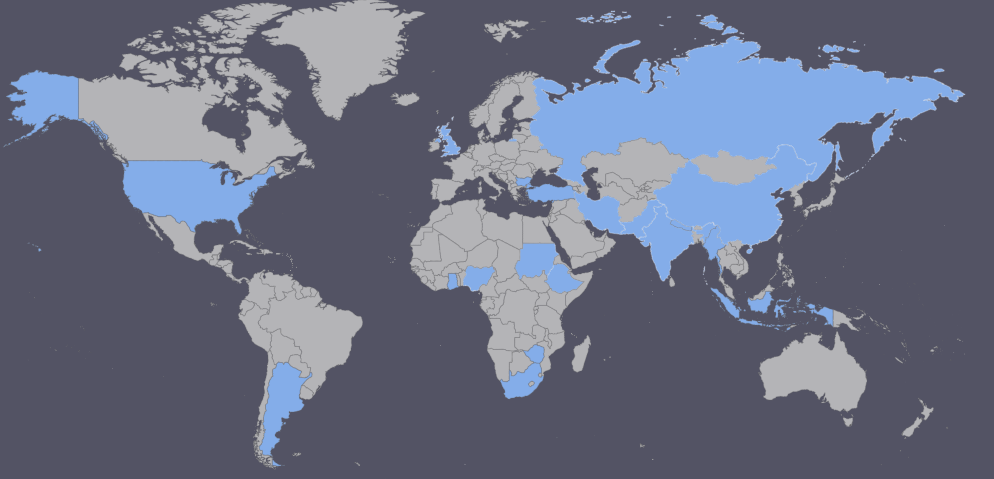Sedimentlogical Study of Chak Hydropower Reservoir, Wardak, Afghanistan
Keywords:
Chack Hydropower, Sediments, Reservoir, Histogram, Cumulative curve, Heavy and light mineralsAbstract
This sedimentlogical, research is carried out aimed atChak dam reservoir sediments study, in Chak, Wardak province. For completion this investigation we used dissimilar samples of Chak dam reservoir. Thestratigraphy of dam reservoir are situatedat the different width, andhave its placeto the discharge of River at the snowmelting seasons.Normally at those years extra precipitation the thickness of layers are additional, but in those years there are drought the thickness of layers are thin.Since that we can find the climate change, because in Afghanistan from 1980 we not having more precipitation.These more aquifers are between different sizes of sediments (sands and gravels).In the dam reservoir we can find different sizes of clay, silt and sands, granules. In this research we found different formation of stratigraphy in profile is consisting different layers like sand, silty clay, gravel, sand, clayey loam,loam and silty clay,gravel with different types of heavy and light minerals . Overall the aquifer are belonging to bigger sizes of sands and gravels. This research is therefore essential to study the different layers in profile, with no or rare previous research’s.
References
Bohannon, R.G., 2005. Geologic map of quadrangle 3468, Chak-e-Wardak (509) and Kabul (510) quadrangles: Afghan Open-File Report (509/510) 2005-1001).
Hamdard, M.H., Soliev, I., Rasouli, H., Kløve, B., Belhassan, K., 2022. Groundwater Quality Assessment in Chak Karstic Sedimentary Basin, Wardak Province, Afghanistan. Central Asian Journal of Water Research 8 (2), 102-109. https://doi.org/10.29258/CAJWR/2022-R1.v8-2/110-127.eng.
Horikawa, K., Ito, M., 2009. Non-uniform acrossshelf variations in thickness, grain size, and frequency of turbidites in a transgressive outer-shelf, the Middle Pleistocene Kakinokidai Formation, Boso Peninsula, Japan. Sedimentary Geology 220 (1), 105-115. https://doi.org/10.1016/j.sedgeo.2009.07.002.
Rasouli, H., Safi, A.G., 2021a. Geological, Soil and Sediment Studies in Chelsaton Sedimentary Basin, Kabul, Afghanistan. International Journal of Geosciences 12, 170-193. https://doi.org/10.4236/ijg.2021.12201120.
Rasouli, H., Sarwari, M.H., Khairuddin, R., Said, A.H., 2020a. Geological Study of Tangi Mahipar Mountain Range along Kabul Jalalabad road, Afghanistan. Open Journal of Geology 10, 971-980. https://dx.doi.org/10.4236/ojg.2020.1010044.
Rasouli, H., 2020b. Application of soil physical and chemical parameters and its Comparing in Kabul Sedimentary basins, Kabul, Afghanistan. International Journal of Recent Scientific Research 11 (2), 37368-37380.
Rasouli, H., 2021b. Analysis of Groundwater Quality in Jabal Sarage and Charikar Districts, Parwan, Afghanistan. Journal of Geological Research 3 (4), 45-55. https://doi.org/10.30564/jgr.v3i4.3717.
Rasouli, H., 2019. A Study On Some Rıver Sedıments, Hydrology and Geologıcal Characterıstıcs In Chak Sedımentary Basın, Wardak, Afghanıstan. International Journal of Geology, Earth & Environmental Sciences 9 (2), 49-61.
Rasouli, H., 2020c. Well Desıgn And Stratıgraphy Of Sheerkhana Deep Well In Chak Dıstrıct, Wardak, Afghanıstan. International Journal of Geology, Earth & Environmental Sciences 10 (2), 54-68.
Rasouli, H., Kayastha, R.B., Bikas C.B., Ahuti S., Arian, H., Armstrong, R., 2015. Estimation of Discharge from Upper Kabul River Basin, Afghanistan Using the Snowmelt Runoff Model. Journal of Hydrology and Meteorology 9 (1), 85-94. https://doi.org/10.3126/jhm.v9i1.15584.
Rasouli, H., Qureshi, R., Belhassan, K., 2021c. Investigations on River Sediments in Chak Sedimentary Basin, Wardak Province, Afghanistan. Journal of Geological Research 3 (4), 21-29. https://doi.org/10.30564/jgr.v3i4.3574.
Rasouli, H., 2022. Climate Change Impacts on Water Resource and Air Pollution in Kabul Sub-basins, Afghanistan. Advances in Geological and Geotechnical Engineering Research 4 (1), 11-27. https://doi.org/10.30564/agger.v4i1.4312.
Rasouli, H., 2017. Study on River Terraces in Upper and Middle Partsof Kabul Sedimentary Basin, Afghanistan. nternational Journal of Science and Research 6 (10), 1696-1704. https://dx.doi.org/10.21275/ART20177497.
Shamal, S., Rasouli, H., 2018. Comparison between pH, EC, CaCO3 and mechanical analysis of Qala Wahid and Company Areas soil, Kabul, Afghanistan. International Journal of Science and Research 8 (5), 429-433.
Summerfield, M.A., Hulton, N.J. 1994. Natural controls of fluvial denudation rates in Major world drainage basins. Journal of Geophysical Research: Solid EarthVolume 99 (B7), 13871-13883.
Downloads
Published
Issue
Section
License
The authors keep the copyrights of the published materials with them, but the authors are aggee to give an exclusive license to the publisher that transfers all publishing and commercial exploitation rights to the publisher. The puslisher then shares the content published in this journal under CC BY-NC-ND license.



